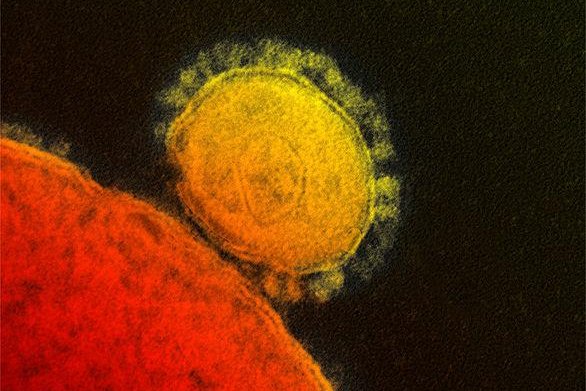HONG KONG, April 28 (UPI) -- Researchers in China have identified two promising antibodies capable of blocking MERS infection -- a bit of hopeful news for health officials after MERS-related deaths topped the 100 mark in Saudi Arabia over the weekend.
According to research by doctors at China's Tsinghua University and Sichuan University, as well as the University of Hong Kong, antibodies MERS-4 and MERS-27 were both able to block a vital virus protein from interacting with the cellular receptor that allows MERS to take hold.















